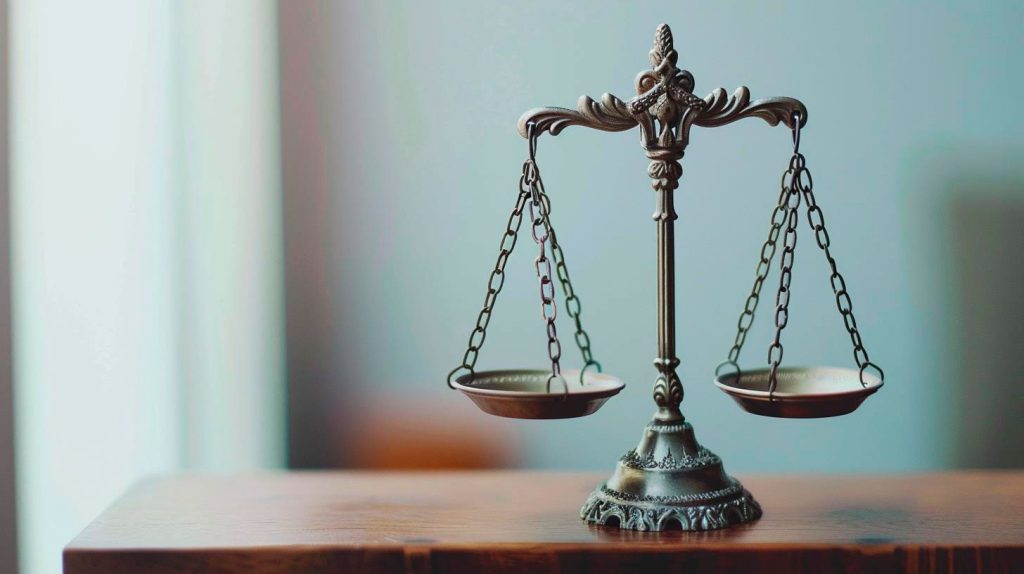
Strategies for Overcoming Bankruptcy Obstacles in Obtaining Loan Modifications
However, there are strategies that can be utilized to help overcome these obstacles and achieve a successful loan modification.
Understanding the Challenges
One of the main challenges individuals face when trying to obtain loan modifications during bankruptcy is the negative impact bankruptcy can have on their credit score. Bankruptcy can significantly lower a person’s credit score, making lenders hesitant to approve loan modifications or offer favorable terms. Additionally, individuals in bankruptcy may struggle to meet the income or debt-to-income ratio requirements set by lenders for loan modifications.
Another challenge individuals face is the complexity of the loan modification process. Applying for a loan modification can be overwhelming, especially for individuals already dealing with the stress of bankruptcy. Understanding the eligibility requirements, collecting the necessary documents, and navigating the negotiation process can be daunting tasks for those in bankruptcy.
Strategies for Overcoming Obstacles
1. Work with a Bankruptcy Attorney
One of the most effective strategies for overcoming obstacles in obtaining loan modifications during bankruptcy is to work with a bankruptcy attorney. A bankruptcy attorney can help individuals understand their rights and options for loan modifications, as well as navigate the loan modification process. They can also negotiate on behalf of their clients with lenders to secure favorable loan modification terms.
2. Improve Credit Score
While bankruptcy can have a negative impact on credit scores, individuals can take steps to improve their credit scores over time. Making timely payments on any remaining debts, reducing credit card balances, and avoiding new debt can help individuals rebuild their credit scores and increase their chances of obtaining a loan modification.
3. Provide Documentation
When applying for a loan modification, it is important to provide all necessary documentation to support your case. This can include proof of income, bank statements, tax returns, and any other relevant financial documents. Lenders will use this information to assess your financial situation and determine eligibility for a loan modification.
4. Seek Professional Advice
In addition to working with a bankruptcy attorney, individuals may also benefit from seeking advice from financial advisors or credit counselors. These professionals can provide valuable insights and strategies for improving financial health, managing debt, and navigating the loan modification process.
Benefits of Obtaining Loan Modifications
Despite the challenges and obstacles individuals may face in obtaining loan modifications during bankruptcy, there are several benefits to pursuing this option. Loan modifications can help individuals lower their monthly mortgage payments, reduce interest rates, and avoid foreclosure. By working towards a loan modification, individuals can improve their financial stability and secure a more manageable repayment plan.
Overall, the key to successfully overcoming obstacles in obtaining loan modifications during bankruptcy is to seek professional guidance, improve credit scores, provide necessary documentation, and stay informed about the loan modification process. With the right strategies and support in place, individuals can navigate the challenges of bankruptcy and achieve their financial goals.
Challenges Faced by Borrowers Seeking Loan Modifications During Bankruptcy
In this article, we will explore the difficulties faced by borrowers seeking loan modifications during bankruptcy and provide insights into how they can navigate these challenges.
Understanding Loan Modifications During Bankruptcy
Bankruptcy is a legal process that allows individuals or businesses to seek relief from their debts by either restructuring them or eliminating them altogether. When a borrower is in bankruptcy, they may still be able to pursue a loan modification with their mortgage lender. A loan modification typically involves changing the terms of the original loan agreement to make it more affordable for the borrower.
However, the process of obtaining a loan modification during bankruptcy can be complicated due to various factors, including the involvement of multiple parties, such as the borrower, the lender, and the bankruptcy court. Additionally, bankruptcy laws and regulations can impact the ability of borrowers to successfully obtain a loan modification.
Challenges Faced by Borrowers
- Communication Barriers: One of the key challenges faced by borrowers seeking loan modifications during bankruptcy is the lack of effective communication between all parties involved. In many cases, borrowers may struggle to communicate their financial difficulties to their lenders, which can hinder the process of obtaining a loan modification.
- Legal Complexities: Bankruptcy proceedings can introduce legal complexities that can make it difficult for borrowers to navigate the loan modification process. For example, bankruptcy laws may limit the ability of borrowers to modify certain types of loans or may require lenders to adhere to specific procedures when considering loan modification requests.
- Time Constraints: Bankruptcy proceedings are often time-consuming, which can pose challenges for borrowers who are seeking expedited loan modifications to avoid foreclosure. The lengthy legal process associated with bankruptcy can delay the approval of loan modification requests, putting borrowers at risk of losing their homes.
- Credit Consequences: Pursuing a loan modification during bankruptcy can have implications for borrowers’ credit scores. While loan modifications can help borrowers avoid foreclosure and regain financial stability, they may also impact borrowers’ creditworthiness and ability to obtain credit in the future.
Strategies for Navigating Challenges
Despite the challenges faced by borrowers seeking loan modifications during bankruptcy, there are strategies that can help borrowers navigate the process more effectively. One key strategy is to work with experienced legal professionals who specialize in bankruptcy and loan modifications. These professionals can provide guidance and support throughout the process, ensuring that borrowers’ interests are protected.
Additionally, borrowers should be proactive in communicating with their lenders and providing all necessary documentation to support their loan modification requests. By being transparent about their financial situation and demonstrating a willingness to cooperate, borrowers may increase their chances of obtaining a favorable loan modification.
It is also important for borrowers to stay informed about their rights and responsibilities under bankruptcy laws. By understanding the legal framework governing loan modifications during bankruptcy, borrowers can make informed decisions and advocate for their best interests throughout the process.
The Role of Bankruptcy Laws in Loan Modification Processes
What is Bankruptcy?
Bankruptcy is a legal process that allows individuals or businesses to seek relief from their debts when they are unable to pay them. There are several types of bankruptcy, with Chapter 7 and Chapter 13 being the most common for individuals.
- Chapter 7 bankruptcy involves liquidating assets to pay off debts, with certain assets exempt from being included in the bankruptcy estate.
- Chapter 13 bankruptcy involves creating a repayment plan to pay off debts over a period of three to five years.
Loan Modification and Bankruptcy
When individuals face financial hardship and are struggling to make mortgage payments, they may consider seeking a loan modification to avoid foreclosure. A loan modification involves changing the terms of the original loan to make it more affordable for the borrower.
Bankruptcy can play a significant role in the loan modification process. For example, if an individual files for Chapter 13 bankruptcy, they may be able to include their mortgage arrears in the repayment plan, allowing them to catch up on missed payments over time.
Benefits of Bankruptcy in Loan Modification
There are several benefits of using bankruptcy in the loan modification process:
- Automatic Stay: When an individual files for bankruptcy, an automatic stay goes into effect, halting all collection activities, including foreclosure proceedings. This provides the borrower with much-needed breathing room to negotiate a loan modification with their lender.
- Debt Discharge: In some cases, bankruptcy may result in the discharge of unsecured debts, freeing up more disposable income to put towards mortgage payments.
- Structured Repayment Plan: Chapter 13 bankruptcy allows individuals to create a structured repayment plan that includes mortgage arrears, making it easier to catch up on missed payments.
Statistics on Bankruptcy and Loan Modification
According to the American Bankruptcy Institute, there were over 767,000 bankruptcy filings in the United States in 2020, with Chapter 7 and Chapter 13 being the most common types of bankruptcy for individuals.
Additionally, the Mortgage Bankers Association reported that there were over 580,000 loan modifications in 2020, with a significant percentage of these modifications being the result of financial hardship caused by the COVID-19 pandemic.
Understanding the role of bankruptcy laws in loan modification processes can help individuals make informed decisions about their financial future and work towards achieving a fresh start financially. Consulting with a qualified bankruptcy attorney can provide valuable guidance and support throughout the process.
Ultimately, utilizing bankruptcy laws in conjunction with a loan modification can provide a lifeline for individuals struggling with debt and help them avoid foreclosure, alleviate financial stress, and rebuild their financial well-being.
Understanding the Relationship Between Bankruptcy and Loan Modification
What is Bankruptcy?
Bankruptcy is a legal process that allows individuals or businesses to seek relief from their debts. There are different types of bankruptcy, with Chapter 7 and Chapter 13 being the most common for individuals. Chapter 7 bankruptcy involves the liquidation of assets to pay off debts, while Chapter 13 bankruptcy allows individuals to restructure their debts and create a repayment plan.
- Chapter 7 bankruptcy can stay on a credit report for up to 10 years
- Chapter 13 bankruptcy can stay on a credit report for up to 7 years
What is Loan Modification?
Loan modification, on the other hand, is a process where the terms of a loan are modified to make it more affordable for the borrower. This can involve reducing the interest rate, extending the repayment period, or even reducing the principal amount owed. Loan modifications are often pursued by individuals who are struggling to make their mortgage payments.
- Loan modifications can help individuals avoid foreclosure
- Loan modifications can have a positive impact on credit scores
The Relationship Between Bankruptcy and Loan Modification
Bankruptcy and loan modification are closely related in that they both provide relief for individuals struggling with debt. However, the decision to pursue one over the other will depend on individual circumstances and financial goals. For example, individuals facing foreclosure may benefit more from a loan modification to keep their homes, while those with overwhelming debt may find bankruptcy to be a more suitable option.
It is important to note that pursuing bankruptcy may have long-term consequences on one’s credit score, making it difficult to obtain new credit or loans in the future. On the other hand, loan modification can help individuals stay current on their mortgage payments and avoid the negative impact of foreclosure.
Which Option is Right for You?
When considering bankruptcy or loan modification, it is important to consult with a legal professional to understand the potential benefits and drawbacks of each option. A bankruptcy attorney can help evaluate your financial situation and recommend the best course of action based on your individual needs.
- Bankruptcy may provide immediate debt relief, but it can have long-term consequences
- Loan modification can help individuals keep their homes and improve their financial stability
Both bankruptcy and loan modification can be viable options for individuals facing financial challenges. It is important to carefully consider the advantages and disadvantages of each option before making a decision. By seeking guidance from a legal professional, individuals can better understand their options and make informed choices to improve their financial situation.
Whether you are considering bankruptcy or loan modification, it is crucial to take proactive steps to address your financial difficulties and work towards a brighter financial future.












